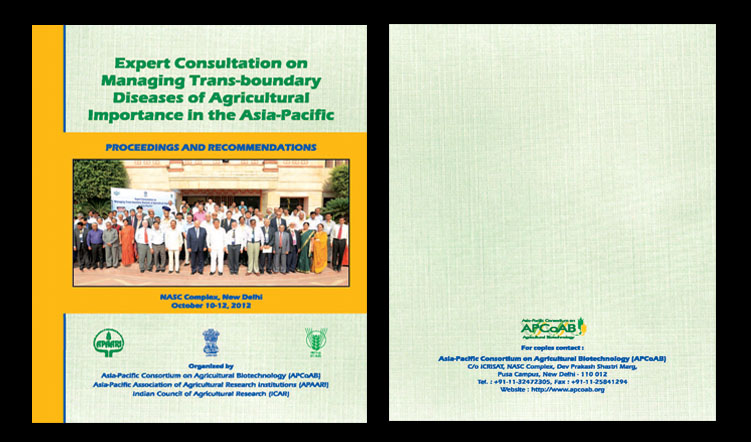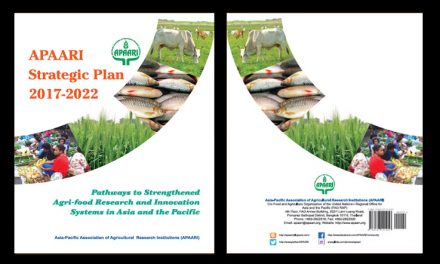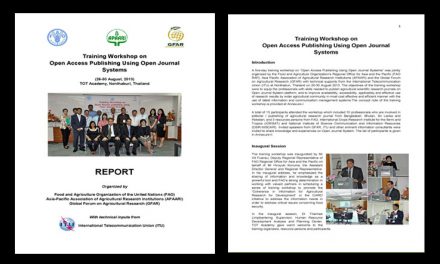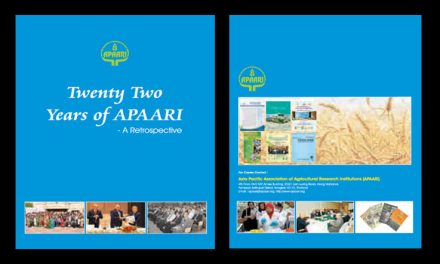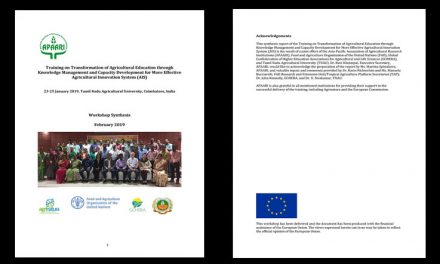Trans-boundary diseases (TBDs) pose serious challenge to agriculture in the Asia-Pacific region. In recent years, UG-99, Avian Influenza, Swine Influenza, Nipah virus, foot and mouth disease, among other TBDs, have adversely affected agricultural productivity and livelihoods of associated communities in the region. In addition, exposure of humans to disease carrying vectors and pathogens of farm animals poses direct threat to human health. Consequently, TBDs contribute to poverty, poor nutrition and health of particularly smallholder agricultural producers. TBDs also act as barriers to trade since quarantine and other measures taken to prevent the spread of such organisms also lead to reduced access to international markets. In addition, trans-boundary pathogens are being viewed as potential bioterrorism agents, thus calling for appropriate biosecurity measures to optimize biological containment.
Managing trans-boundary diseases is one of the most important areas of regional cooperation in the Asia-Pacific region. Cross-boundary cooperation in surveillance, diagnostics, epidemiology and containment are the most effective means of combating this menace. To provide a common platform for addressing this issue, the biotechnology program of the Asia-Pacific Association of Agricultural Research Institutions (APAARI), popularly known as Asia-Pacific Consortium on Agricultural Biotechnology (APCoAB), in collaboration with the Indian Council of Agricultural Research (ICAR) organized an Expert Consultation on “Managing Trans-boundary Diseases of Agricultural Importance in the Asia-Pacific” on 10-12 October 2012 in New Delhi. APCoAB has been engaged in promoting application of biotechnology policies and tools for increasing agricultural productivity while enhancing biosafety and biosecurity. This expert consultation was, therefore, an additional one in the series of such events to deliberate on thematic issues of regional importance.
The meeting took stock of the status of occurrence and impact of TBDs in Asia- Pacific countries, progress in R&D, and current and future needs to manage these diseases so as to minimize their economic, social and environmental impacts. Extensive discussions carried out during the sessions resulted in various recommendations concerning TBDs and their management in the region. It is our hope that these recommendations will help the policy makers, ARD managers and regulatory officials to take appropriate decisions and put effective systems in place, including strengthened regional cooperation, to minimize the spread and impact of agriculturally important trans-boundary diseases.

